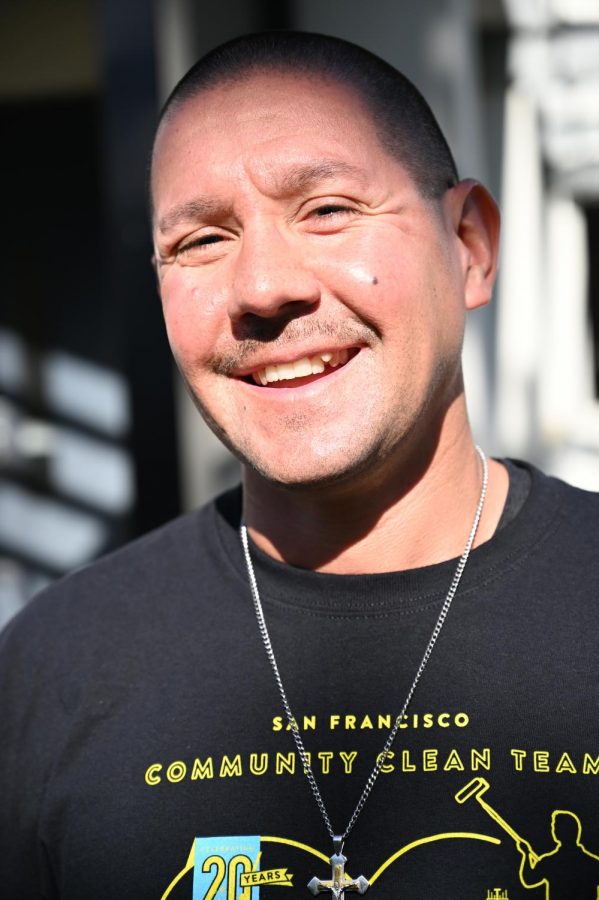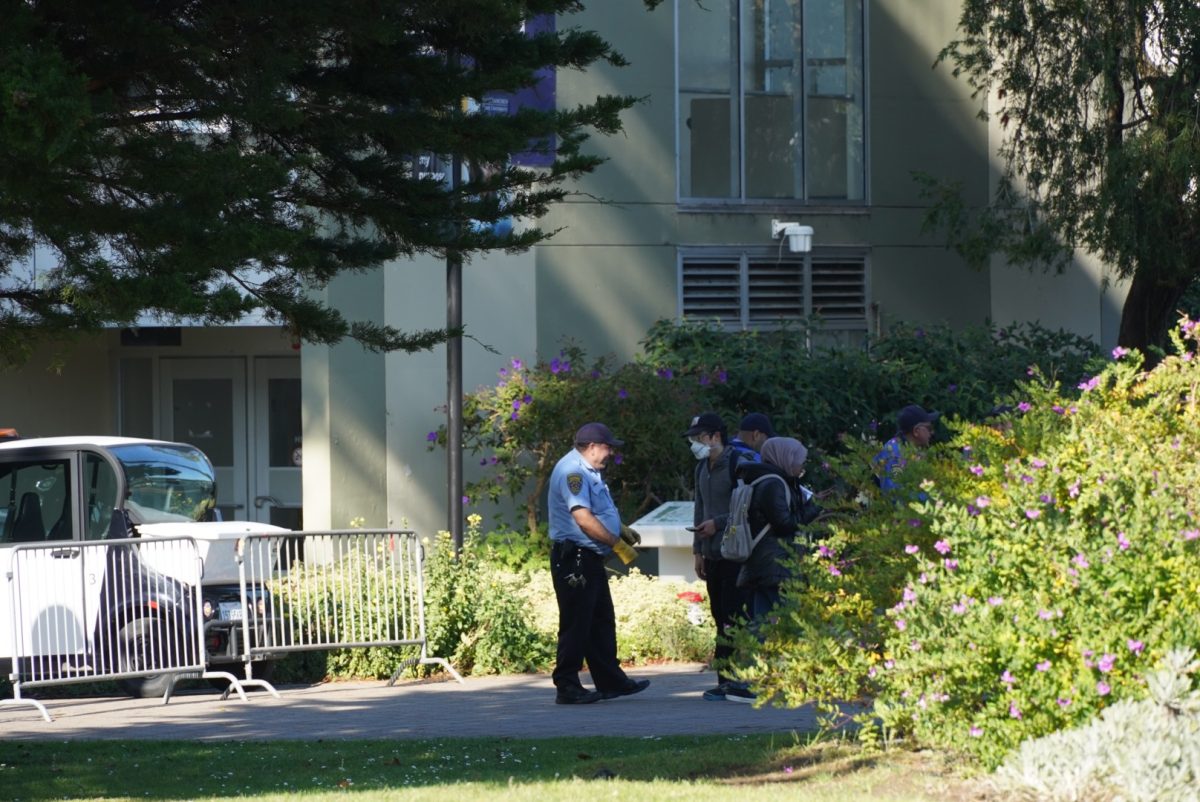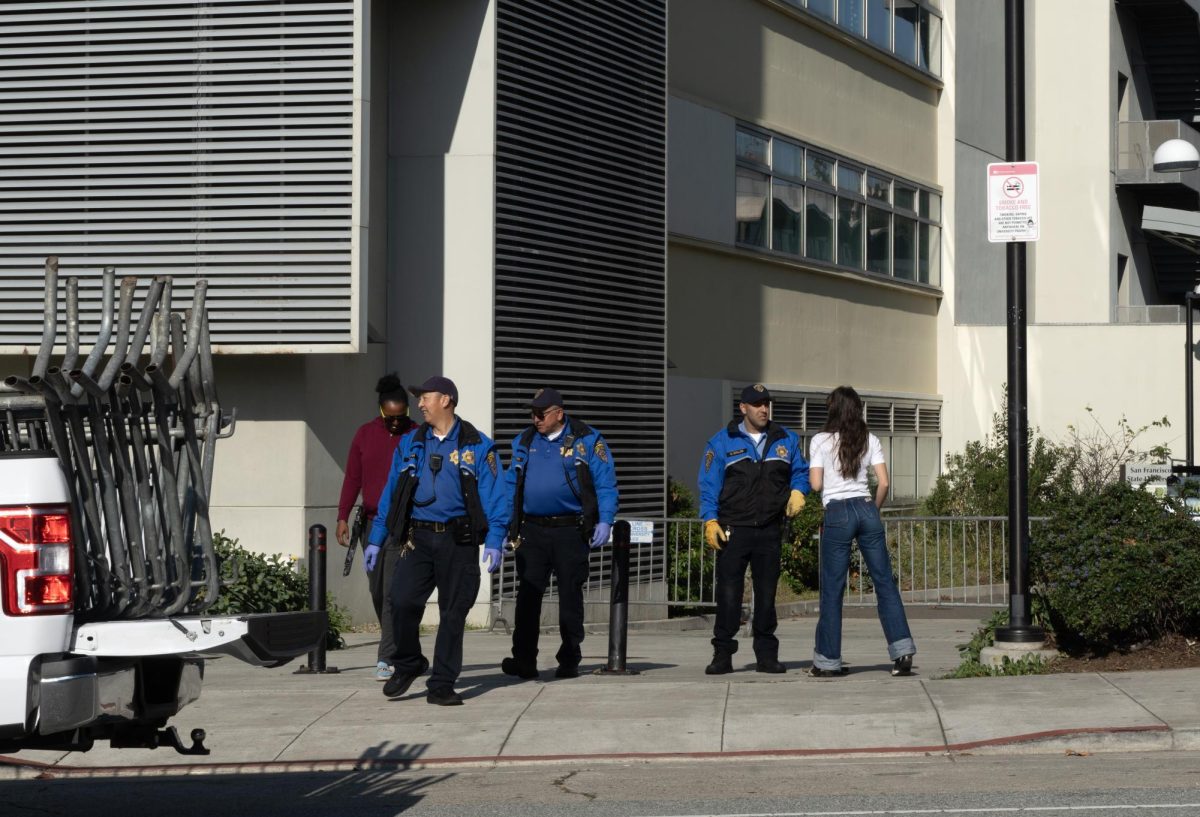Ineligible voters go voiceless in 2020 primaries
J Vasquez smiles for a photo outside of the Project Rebound office in the Cesar Chavez building on March 9, 2020.
Mar 10, 2020
Of San Francisco’s 503,899 registered voters, only 275,200 people voted in the March 3 primary election.
J Vasquez is a formerly incarcerated student and has been at SF State for two semesters now. Vasquez stated that he doesn’t use his first name because it’s his government name and identifies more with the letter “J” alone.
Vasquez, a sociology major and criminal justice minor, will be on parole for a minimum of five years. Due to his parole status, Vasquez is not eligible to vote.
While roughly half of San Francisco’s eligible voters regularly choose not to participate, people like Vasquez lament their exclusion from the democratic process.
“The importance of being able to vote is to have my voice heard because there are certain issues in my community that I care about that I don’t have a say in. Such as, for example, you got prop 13 coming up on this [ballot] for the state on funding our schools,” Vasquez said.
He thinks that not having a voice while paying taxes is not democracy.
“This country was founded on the principle of being able to have a voice and I pay taxes. And so, you know, the whole taxation without representation applies to me, which was important to the founding fathers of this country on why they fought to establish this so called democracy was not a democracy, Vasquez said.
Director of Project Rebound, Jason Bell, assists formerly incarcerated people who want to admit to SF State. This program offers individuals the information needed to apply and meet academic deadlines to qualify.
Bell has been recognized as being the exception to the rule but feels that there are hundreds of students part of Project Rebound that have done more than him.
She agrees with advocacy for formerly incarcerated voting rights and acknowledges the disenfranchisement that students he interacts with face.
In Sacramento the California State Assembly passed Assembly Constitutional Amendment 6, which would restore voting rights to nearly 50,000 Californians on parole according to the ACLU of Southern California. If this passes it will be included in the November 3, 2020 ballot.
“Yes, I would like to see actually people be able to vote in custody. And if they don’t, then they ought to be forced to stop using their numbers for political gain in the surrounding communities,” Bell said.
Stephanni Hernandez is an undocumented student that came from El Salvador four years ago with her mother without knowing any English. She came to this country to seek refuge from danger in her own country.
Assembly Bill 540 gives eligible students who may be undocumented or the children of someone undocumented exemption from paying non-resident fees, according to SF State’s Dream Resource Center.
Passed in 2001 by the California legislature, AB 540/SB 68 allows students who are either undocumented or U.S. Citizens/ Permanent Residents but are considered non-residents permit tuition purposes.
“It was really hard cause I just start[ed] here, I didn’t speak English I didn’t know anywhere. I wanted to study but I didn’t know how to apply to anywhere and everywhere you go they just start talking English and the people that speak Spanish they don’t speak English,” Hernandez said.
Hernandez is in her first year at SF State and her major is currently undecided. She is not able to vote but Hernandez thinks it’s unfair because she lives in this country. Hernandez said that everything that voters decide affects her life too.
“It will be more help for them like health care because I know a lot of people that are over 18 years old and they just came to work and they don’t even have healthcare or anything.”
Hernandez said there are certain issues that she is concerned about the most. Health care and racial injustice are the issues pertaining to politics that stand out the most for Hernandez.
“Also it could be injustice because sometimes there’s a lot of racism anywhere that you go. They prefer to attend first white then people of color especially if they don’t speak English or if they don’t have to convince,” Hernandez said.











Starchild • Mar 15, 2020 at 3:42 am
This is a serious problem. It isn’t just former felons or people on patrol who are prohibited from voting, though that is bad enough. Governments engage in massive discrimination on the basis of where people were born or who their parents were. Like race, gender, and sexual orientation, these are circumstances over which people have no control. Nationalism is just as wrong as racism, sexism, and homophobia – it leads to some people being treated, through no fault of their own, as lesser members of society, or excluded altogether.
Another fundamental way that people are denied their voice is by the non-consensual system of taxation based on the threat of violence, in which resources are taken from members of the public without their individual consent. Consent matters in all aspects of our lives, not only when it comes to sex and relationships.
If you would like to see a government based on consent, an end to discrimination on the basis of nationality, and all people having equal legal rights regardless of where they were born or who their parents were, support the Libertarian Party. Visit http://www.LP.org to find out more info about our party in the United States, or visit your local chapter here in San Francisco at http://www.LPSF.org and get involved to make a difference and reclaim the freedom that is your natural birthright no matter who you are.
Love & Liberty,
Starchild
Chair, Libertarian Party of San Francisco
(and Golden Gate Xpress alumnus!)